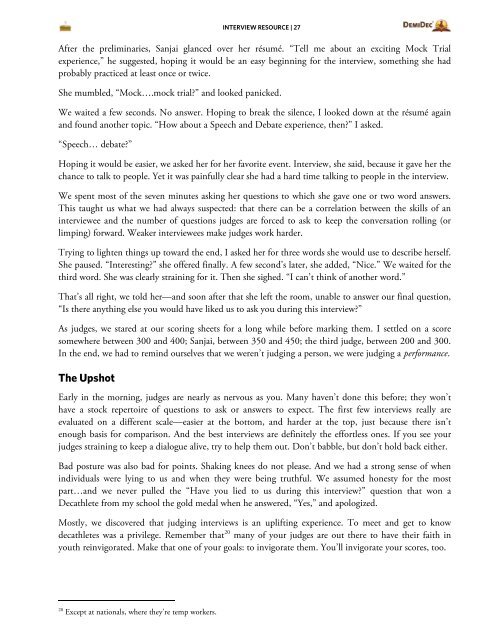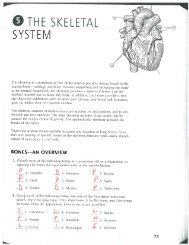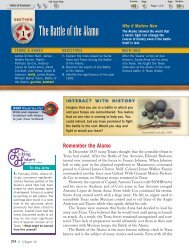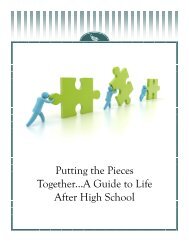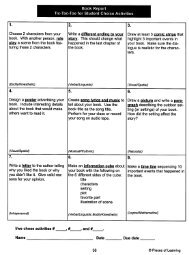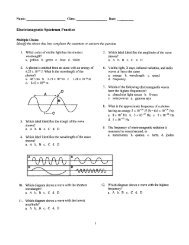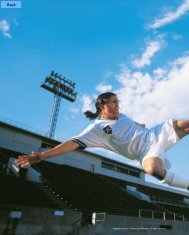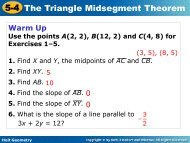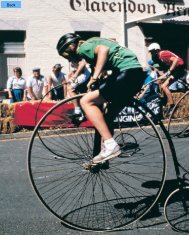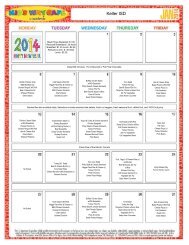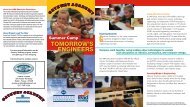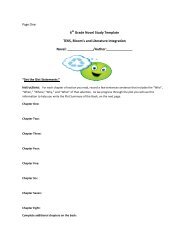Interview Resource - Keller ISD Schools
Interview Resource - Keller ISD Schools
Interview Resource - Keller ISD Schools
Create successful ePaper yourself
Turn your PDF publications into a flip-book with our unique Google optimized e-Paper software.
INTERVIEW RESOURCE | 27<br />
After the preliminaries, Sanjai glanced over her résumé. “Tell me about an exciting Mock Trial<br />
experience,” he suggested, hoping it would be an easy beginning for the interview, something she had<br />
probably practiced at least once or twice.<br />
She mumbled, “Mock….mock trial?” and looked panicked.<br />
We waited a few seconds. No answer. Hoping to break the silence, I looked down at the résumé again<br />
and found another topic. “How about a Speech and Debate experience, then?” I asked.<br />
“Speech… debate?”<br />
Hoping it would be easier, we asked her for her favorite event. <strong>Interview</strong>, she said, because it gave her the<br />
chance to talk to people. Yet it was painfully clear she had a hard time talking to people in the interview.<br />
We spent most of the seven minutes asking her questions to which she gave one or two word answers.<br />
This taught us what we had always suspected: that there can be a correlation between the skills of an<br />
interviewee and the number of questions judges are forced to ask to keep the conversation rolling (or<br />
limping) forward. Weaker interviewees make judges work harder.<br />
Trying to lighten things up toward the end, I asked her for three words she would use to describe herself.<br />
She paused. “Interesting?” she offered finally. A few second’s later, she added, “Nice.” We waited for the<br />
third word. She was clearly straining for it. Then she sighed. “I can’t think of another word.”<br />
That’s all right, we told her—and soon after that she left the room, unable to answer our final question,<br />
“Is there anything else you would have liked us to ask you during this interview?”<br />
As judges, we stared at our scoring sheets for a long while before marking them. I settled on a score<br />
somewhere between 300 and 400; Sanjai, between 350 and 450; the third judge, between 200 and 300.<br />
In the end, we had to remind ourselves that we weren’t judging a person, we were judging a performance.<br />
The Upshot<br />
Early in the morning, judges are nearly as nervous as you. Many haven’t done this before; they won’t<br />
have a stock repertoire of questions to ask or answers to expect. The first few interviews really are<br />
evaluated on a different scale—easier at the bottom, and harder at the top, just because there isn’t<br />
enough basis for comparison. And the best interviews are definitely the effortless ones. If you see your<br />
judges straining to keep a dialogue alive, try to help them out. Don’t babble, but don’t hold back either.<br />
Bad posture was also bad for points. Shaking knees do not please. And we had a strong sense of when<br />
individuals were lying to us and when they were being truthful. We assumed honesty for the most<br />
part…and we never pulled the “Have you lied to us during this interview?” question that won a<br />
Decathlete from my school the gold medal when he answered, “Yes,” and apologized.<br />
Mostly, we discovered that judging interviews is an uplifting experience. To meet and get to know<br />
decathletes was a privilege. Remember that 20 many of your judges are out there to have their faith in<br />
youth reinvigorated. Make that one of your goals: to invigorate them. You’ll invigorate your scores, too.<br />
20<br />
Except at nationals, where they’re temp workers.


